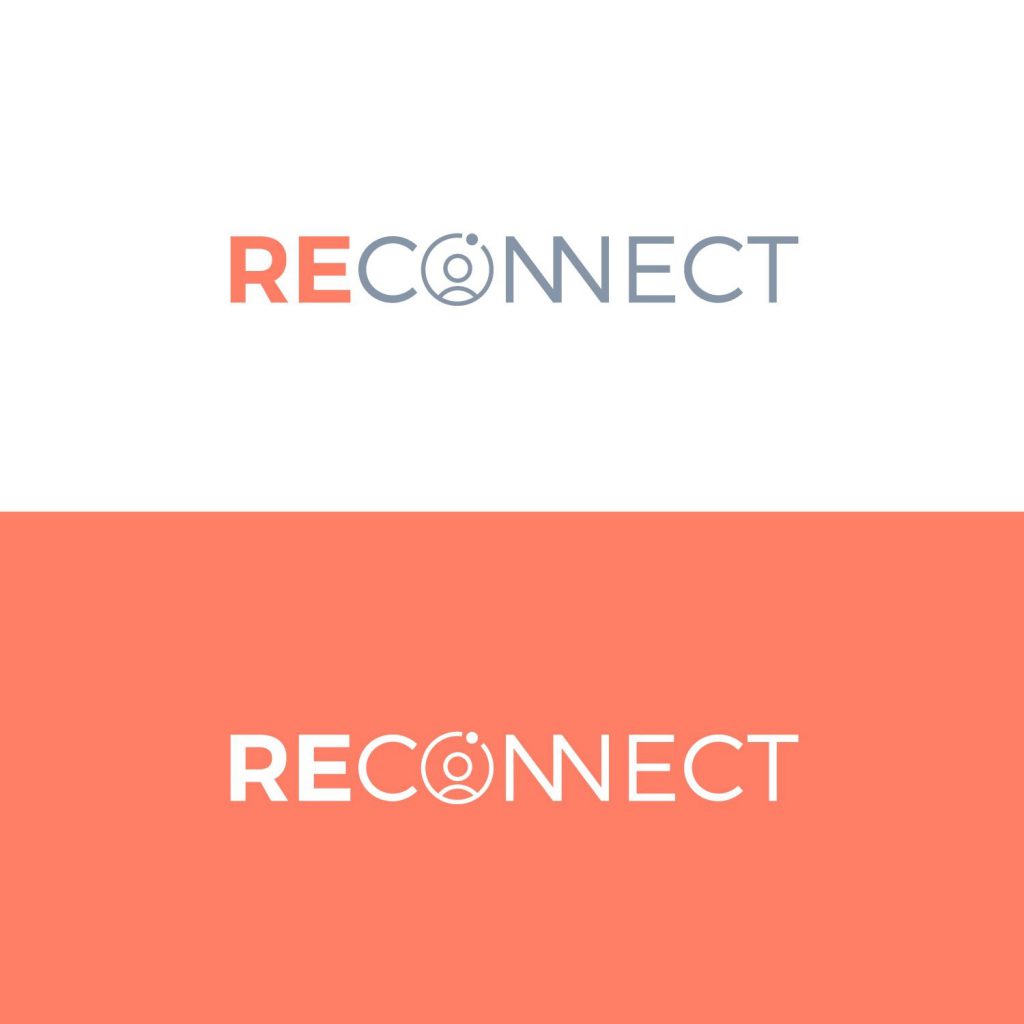Better Digital Learning

The project Reconnect had their second transnational project meeting, devided over two days (April 13th-14th 2021). The digital meeting covered among others the data analysis report of the student focus groups. Previously we already published an article with the results of the student questionnaires (Click here). Part 2 of the ReConnect Blog series ‘Better Digital Teaching and Learning’ has a very interesting outcome: Students really like science and social studies. The students don’t really come up with amazing answers when it comes to why these lessons are the most engaging and well liked: ‘Because it’s very interesting and like it very much’ are the most obvious answers. But don’t worry, it get’s better.
More Attractive Digital Learning
Students from Turkey and Malta said they liked the science lessons best. So in total Science topped the charts (fifteen hits) in both countires. Social studies/ History and mathematics ranked high as well. Social studies includes primarily history, geography, civics, economics, and sociology. So it’s not very specific answer. Students mention as the most boring lessons: Arts (and music) and Social studies (5 times). English and Maltese are mentioned as well (both twice).
Overall students would like the lessons to be more attractive and more engaging. This could be done by adding ‘more fun’ in the lessons. The teacher could present more funny, by making jokes or using storytelling, or some kind of technology (e.g. virtual glasses) and / or by doing more activities, practice by doing, experiments, excursions and team work. Playing (educational) games or online tests was also mentioned as a good support tool. Engagement can be pushed by giving awards as well. Showing students what to do by using more video’s (e.g. You Tube, movies or documentaries ), using power points slides and models and images.
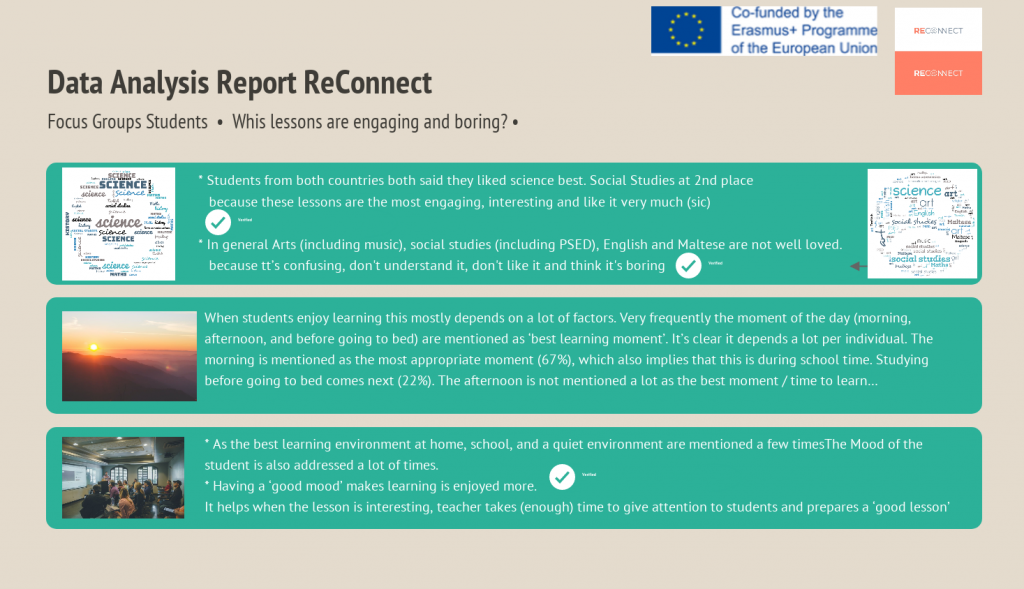
How to Learn and gain Knowlwedge?
Students say that when they want to learn something or have to look for information needed, they would mostly do research on the internet (e.g. google, websites) and read books (e.g. encyclopedias, go to the library) and or ask someone (e.g. teacher, parents, family, close friends). Watching videos was also mentioned separately (but is of course connected to internet).
’YouTube is good – my friends and I watch a lot of videos on YouTube because they are more engaging than when reading or when we listen to someone speaking’’
Student Quote from the ‘Better Digital Teaching and Learning’ Data Analysis ReConnect Report
Interesting was the trend that a lot of students said that they would check what they found on the internet by also researching in libraries and books: ‘’That the information found is not false’’.
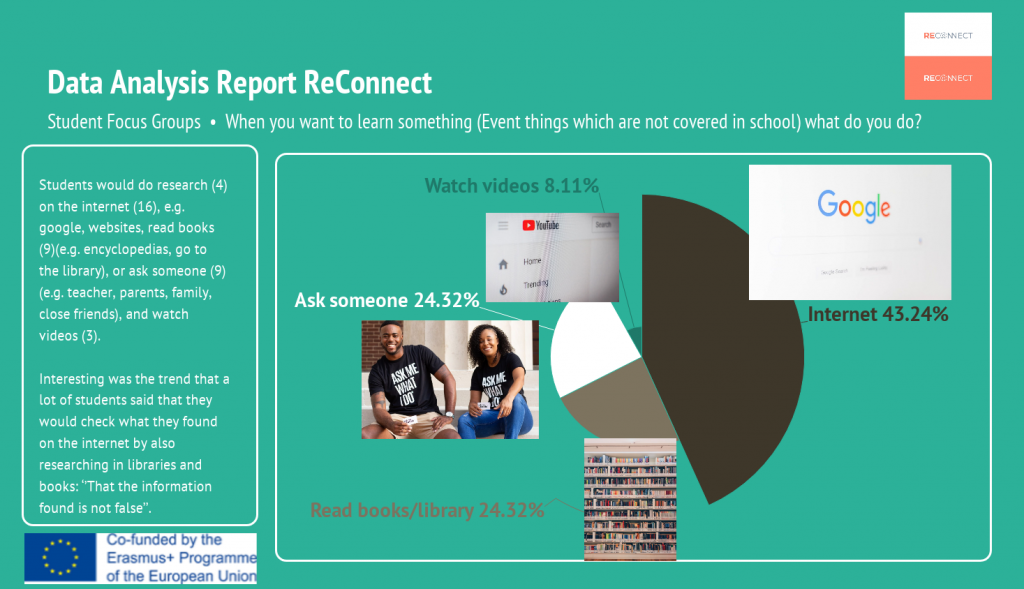
Most students enjoy learning . Only one student did not (when the topic is not of interest). Having a ‘good mood’ is mentioned that it makes a big difference to consume the learning as enjoyable. It helps of course when the lesson is interesting, the teacher takes (enough) time to give attention to his/her students and prepares a ‘good lesson’.
When students enjoy learning this mostly depends on a lot of factors. Very frequently the moment of the day (morning, afternoon, and before going to bed) are mentioned as ‘best learning moment’. It’s clear it depends a lot per individual. The morning is mentioned as the most appropriate moment, which also implies that this is during school time. Studying before going to bed comes next. The afternoon is not mentioned a lot as the best moment / time to learn… As regards to the best learning environment at home, school, and a quiet environment are mentioned a few times.
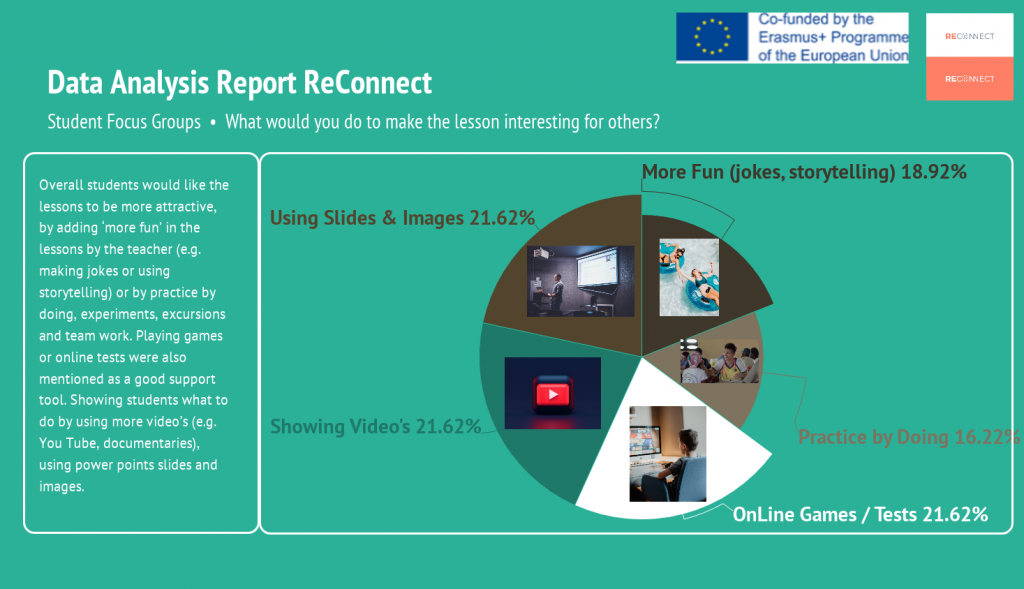
When you have the power to Change the Lessons, what would you do?
When students had the power to change whatever, they would change lessons more towards ‘learning/practice by doing’. Excursions through trips, being active, ‘more fun applications’, ‘more realistic’. In general it’s said that the teaching is too ‘dry’ theory (through, writing / reading). This way of learning does not appeal e.g. to the auditory and kinesthetic learners (hands on). Suggestions to have less homework is also mentioned multiple times.
More or less students are equally afraid of (not) making mistakes. 33% of the students say they are not afraid, because they learn from mistakes and it does not matter if you mkae a mistake when you do the you can. 33% say they really don’t want to make mistakes. 33% says ‘sometimes’: It depends on the consequence: When the consequence is a lower grade, they feel judged or are more scared for the reply of the teacher.
Digital Transnational Project Meeting
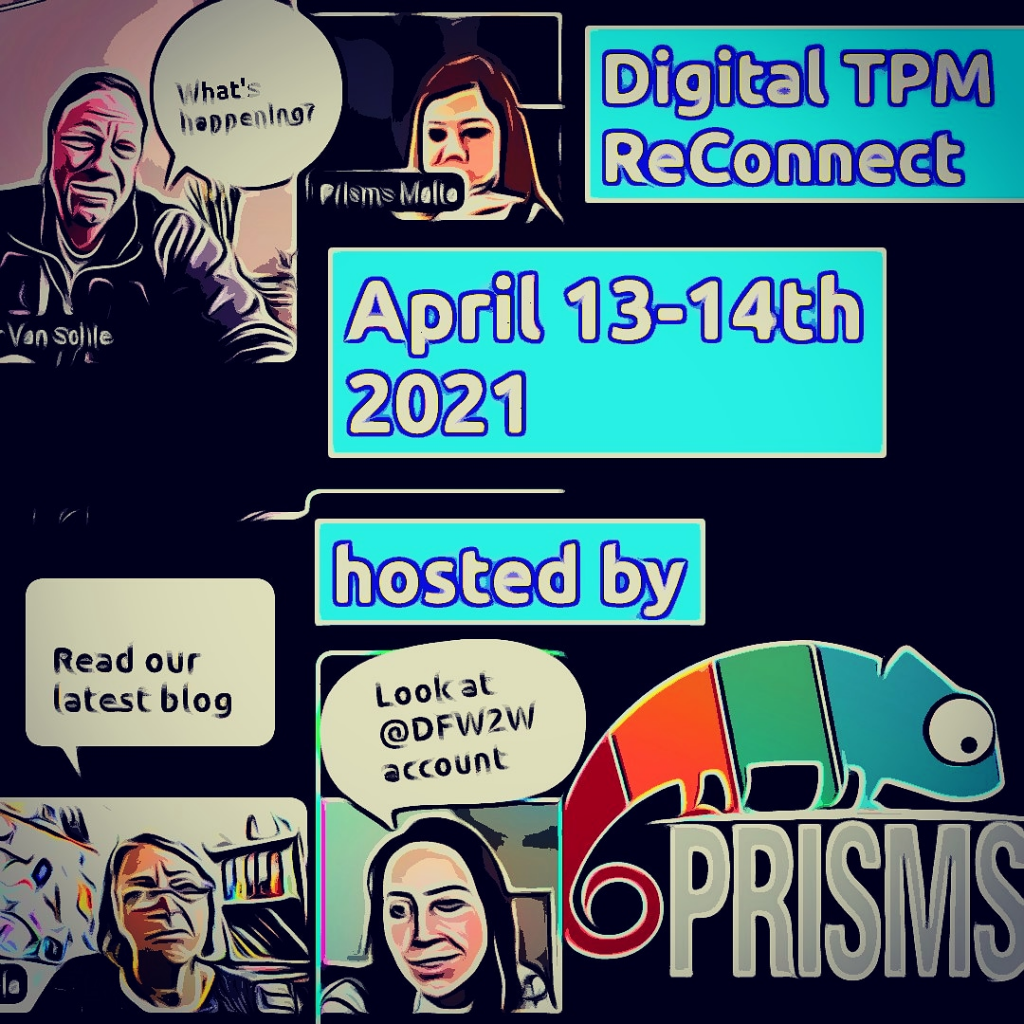
On April 13th-14th 2021 the project ReConnect held their digital Transnational project meeting. Soon more news about what we have discussed during this event in a couple of days. For now, this was the second blog in the ReConnect series ‘Better Digital Teaching and Learning’. Do you want to read the first blog, click here. The project ReConnect is co-funded by the Earasmus Plus Programme of the European Union.


